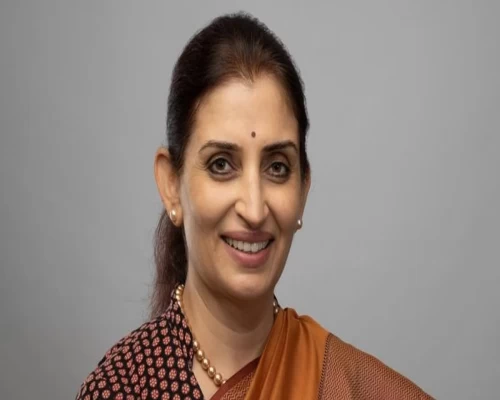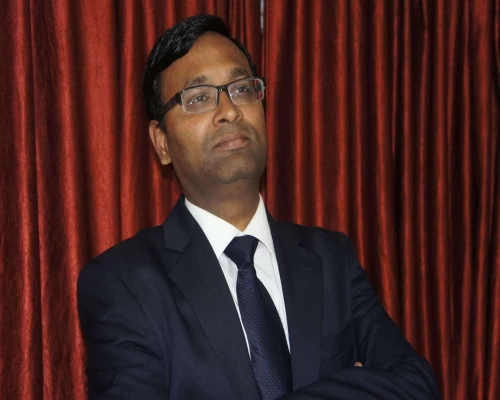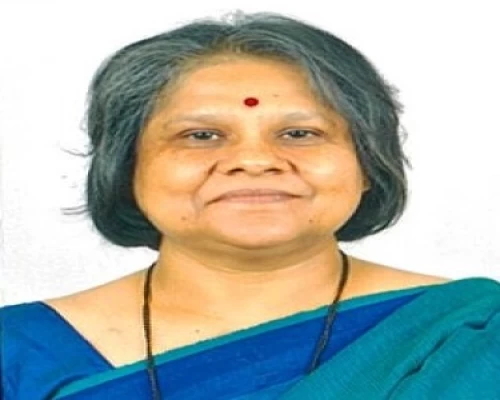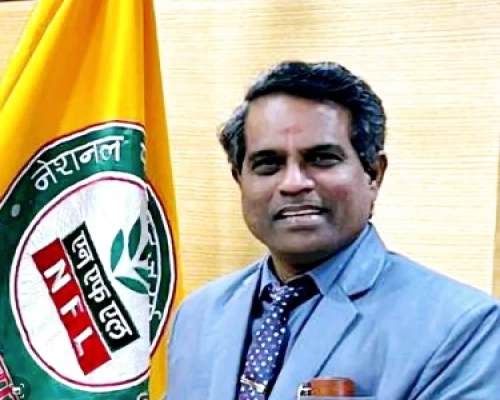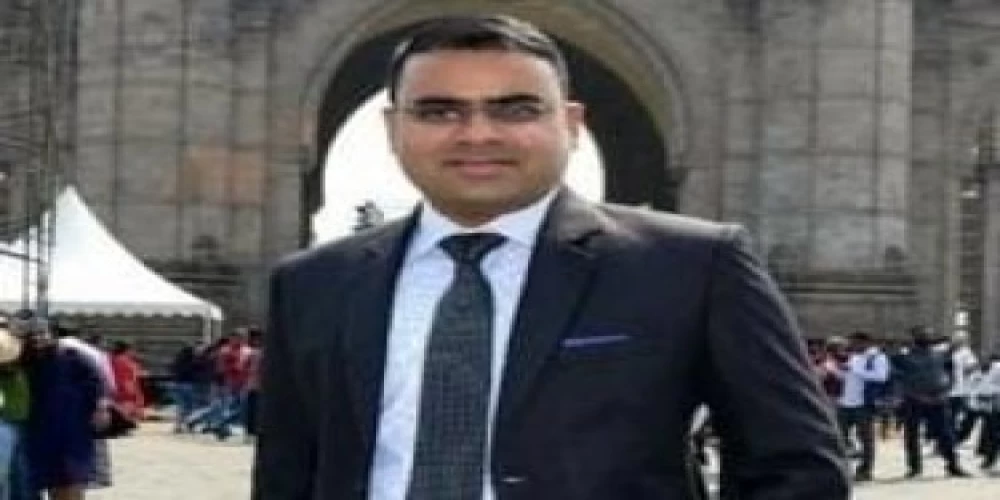
Guntur (Andhra Pradesh: Technology has played a key role in enhancing transparency and efficiency in governance. Futuristic technologies including Artificial Intelligence are emerging as a new area to play an equally significant role in executing government welfare schemes and programmes. “My experience in governance has made me realize that transparency and efficiency achieved through technology takes us towards an era of providing an arm to the people. We are thus shifting away from the culture of providing to enabling,” said Guntur District Collector Vivek Yadav, IAS, in an exclusive interview to Niharika Priyadarshi of Bureaucrats India.. Read The Complete Interview Here:
How do you look at the role of technologies in taking the benefits of governance to people?
They have a great role to play. Look at Jan-Dhan-Aadhaar-Mobile (JAM) trinity, which has made a positive difference in people’s lives. It has helped the poorest of the poor, the marginalized and the downtrodden. This has been possible thanks to technologies. Futuristic technologies like artificial intelligence (AI) are also poised to play a big role in the field of governance.
In Andhra Pradesh, AI is being used to forecast electricity demands, identify school dropout rates, predict farmers yield and for Real Time Beneficiary Identification Systems of government schemes. Not only this, Chief Minister Shri YS Jagan Mohan Reddy recently called for strengthening of Rythu Bharosa Kendras (RBKs) at village level itself leveraging technology.
Social media has arisen to become a game changer in today’s time due to its reach in all age groups, especially 18-44, and all geographies, driven by low data prices and cheaper handsets. What is your take?
Recognizing the importance of social media, we have established a social media grievance redressal cell in our district which initially took complaints and grievances over Twitter but was later extended to Facebook also. The cell has received good reviews from complainants as may be seen on the handle @CollectorGuntr. However the aim is not only to redress those complaints but also to send a signal to all the concerned officials that grievance redressal is a key component of delivering efficient governance to the citizens as a right.
In addition, I also feel that technology does not always have to be complex or removed from the larger public. Simple interventions such as wide usage of Google Sheets can help in much faster consolidation and analysis of data today, guiding key policy decisions even at district level. For example, during Covid-19, Guntur district started a matching and batching system where 9000 paramedic staff tracked over phone the home isolated people for their psychological counselling and the response was recorded through a Google Sheet, thus making the process much faster.
The District Administration did a fabulous job during the first and second waves of Covid-19. How future ready is the district set up to cope with any such challenges?
Under the dynamic and visionary leadership of Chief Minister Shri YS Jagan Mohan Reddy, Guntur District during first and second wave of Covid-19 focused on active and passive surveillance activities including door to door fever survey, elaborate testing and triaging efforts along with efficient oxygen management. The entire Covid-19 handling was based on a premise that ‘every fever must be treated as a Covid-19 fever in the times of pandemic’.
With regards to future preparation, the district finds itself well placed. Fever survey is going on. PSA plants are being set up in every hospital with 100 plus beds capacity. Not only this, new facilities for critical and pediatric patients have been set up. Vaccination efforts are going on well in the district with focus on all sections and age groups. Guntur has given over one lakh doses in a single day in multiple mega vaccination drives of the state. The overall vaccination coverage of the district for the eligible population is more than 90 per cent. It is imperative that vaccines would act as the most potent preventive measure.
MGNREGS is doing quite well in your district. How have the works done so far have impacted people’s lives?
Guntur District has seen significant achievement in MGNREGS scheme. By June 2021, the district surpassed its target of creation of one crore man days of employment and a highest ever Rs 221 crore was released as wage component directly into bank accounts of beneficiaries this year. I have personally interacted with several beneficiaries of the scheme who have expressed their gratitude towards Chief Minister Shri YS Jagan Mohan Reddy for making this possible. This became all the more pertinent during times of Covid-19 in rural India, creating a lot of employment and assets on farmlands.
It may be seen that over 40 lakh of these 1.2 crore beneficiaries are women while around 30 lakh are persons belonging to Scheduled Caste, Scheduled Tribes and Backward Classes. Overall, MGNREGS’ impact extends to water conservation management, flood control, afforestation and many varied areas. The 40 per cent material component of MGNREGS is being utilized to create village level infrastructure like Rythu Bharosa Kendra, Village Secretariat, Village Health Clinics, and Digital Libraries.
Help us to understand how intricate it is to work for the government – given the enormity of the task at hand as well as expectations from a civil servant.
In government, one may have to tackle varied tasks like housing, MGNREGS, Covid-19 pandemic, land issues, disasters, elections, health, nutrition, and so on. This enormity of task is characterized with the presence of several stakeholders with their wisdom -- public representatives, legal representatives, academia, businesses, non-governmental sector, people from urban and rural areas with varying professions, employees and general public.
A Civil Servant is also bound to provide services pre-defined timelines, violation of which may invite criticism from citizenry. Hence working for the government is certainly an intricate task-made complicated by a wide variety of challenges. Yet I have always believed that you always find a way through good planning, effective coordination (taking everyone along) and decentralizing work (by trusting people-but not without monitoring). A mix of good personnel and organizational management approach can bring in a lot of efficiency in the system.
How has been your journey in bureaucracy so far? What aspect of your job do you enjoy the most?
There is a great deal of learning involved in the Civil Service. It provides a wide platform and diverse subjects to deal with throughout the career. During 13 years of my service, I could handle subjects like land issues, Civil Supplies, Law and Order, Urban management, Procurement, Panchayati Raj Systems, Election management, Environmental regulations, Public Health, etc.
As a bureaucrat, you have enormous opportunities to serve the people through effective implementation. How has been your experience on this count so far?
When I started my career, like many others, I often felt bogged down by so much that is around. Yet with experience, we realize that the service offers immense opportunities in wide areas with a common underlying theme: public service. This has been a common theme in the careers of so many in Andhra Pradesh cadre. At the ground level, this indeed comes through effective implementation of government policies.
This implementation takes many forms. One is achievement of national and state priorities -- All Navaratnalu Schemes, Ryuthu Bharosa, Nadu Nedu, Revenue Survey, Allotment of House sites and construction of Housing for weaker sections, Amma Vodi, Jagananna Todu, Swachch Bharat, housing, vaccination, agricultural and land policies, pollution control, conducting elections and so on. Overall this has been a very satisfying experience available in rarely any other job at this scale.
Recently, while travelling, I saw a Divyangjan who could not receive pension due to failed authentication and was moved. I visited his residence to hand over his welfare pension and directed authorities to ensure such payments without seeking authentication, prioritizing humanity. In Guntur, we have also started a Dial your Collector Program and Social Media Grievance Redressal team so that citizens can seek effective grievance resolution through various means.
When did you realize that you wanted to join the government - and what all did you do to reach there?
Unlike many others, my realization to attempt the examination and join the government did not come very early. My father was in the NTPC and hence I had some knowledge about the public sector. Yet my own mind was set to work in the software sector.
However after I joined C-DOT in 2003, I realized that I wanted a much more diverse experience and leadership opportunity in the early years of my career. I realized that the Civil Services offered such a career while also providing a respectable life for any person from a middle class family. Further, the potential to affect lives in the services through ground level work was also a consideration.
After engineering, I worked at C-DOT for around five years during which I gave three attempts at the examination. Working full time while preparing was certainly not an easy task and required double the amount of effort. However, with determination and security provided by the job, I was able to crack the examination.
How easy or difficult was it to adapt to the Civil Services? How did you reorient yourself?
Adapting to the Civil Services, having come from the software research sector, was a different experience. In hindsight, one can only think about the challenges as a great learning experience. I remember when we were young trainee officers in the academy or in the district, we were often gasping to catch hold of the laws, regulations and processes. One should always remember that the key aim of any action should ultimately result in public benefit. This can be achieved through having one foot on the ground with compassionate ears and having the zeal to consistently monitor all the affairs under the jurisdiction.
What are some of your achievements as a government servant whom you would like to share with us?
During the work I have done as part of several teams, we have had some good results by God’s grace that was recognized at various levels.
As Municipal Commissioner of Warangal, we implemented the Clean City Championship program on Solid Waste Management (SWM). This led to the initiative featuring on the famous TV show ‘Satyamev Jayate’ and was appreciated as the best practice by the HUDCO. In Vizianagaram, as District Collector, the initiatives under Swachh Bharat Programme of constructing 10,000 toilets in a day was noticed nationwide and was appreciated by the Prime Minister Shri Narendra Modi in his public outreach programme ‘Mann Ki Baat.’ Through effective implementation, Vizianagaram district also secured the first rank among 115 Aspirational Districts by the NITI Aayog in the baseline rankings.
In 2019, I was awarded the Indian Express Award for Excellence in Governance (Energy Category) for developing alternative energy sources and promoting energy efficiency. Further, in my stint in Guntur, effective conduct of elections and management of the second wave of Covid-19 is an achievement to me where the district has handled rapidly evolving situations well.
Bureaucracy in India has undergone a metamorphosis in the last few decades especially in terms of design and delivery. It is far more efficient today, and this has given rise to soaring expectations. How do you look at this trend?
I feel there are two aspects to this question. At the outset no one can deny that this is a positive trend and in fact this is the need of the hour: an engine delivering predictable quality, acceptable to the public. This can be seen in the administration of today, especially in Andhra Pradesh: Service level agreements, proactive disclosure and multiple levels of internal grievance resolution. Most of the services are shifted online through the revolutionary Village and Ward Secretariat launched by Chief Minister Shri YS Jagan Mohan Reddy. The Central government has also given a fillip to this idea through Digital India and the concept of an Atma Nirbhar Bharat, universalizing delivery of public services. However, on the other hand, I also believe that to sustain this delivering engine, the Civil Servants have a huge responsibility to constantly update and upgrade themselves.
What are some of the changes you would wish to see in bureaucracy?
Bureaucracy, in its wider form, includes all functionaries of the government from the top to the bottom levels. While the system has sustained itself over time, change is the only constant. Some changes that I would wish to see in bureaucracy are: A more responsive, committed and humane cadre of bottom level bureaucracy; retention of youthfulness and zeal to learn at all levels, as is present at the time of entry into the services; development of an understanding that digitalization can complement but not replace the role of human. Development of an invisible and faceless bureaucratic system driven by robust IT based systems that the citizen may not require to approach from time to time, yet it delivers consistently.
What are the lesser known facts about bureaucracy in India?
Indian bureaucracy has delivered during various testing times. During the corona pandemic, the government servants including police personnel, health professionals, sanitation and Panchayat raj staff worked 24 x 7 putting their lives at stake. They deserve all appreciation from Indian citizens. A small appreciation from a citizen about government officials, staff motivates them to do even better and serve the public with more zeal. Another lesser known fact is that bureaucracy works for longer hours often without leaves in remote and challenging locations.
Do you feel people have a lot of expectations from Civil Servants?
I feel people have a lot of expectations from civil servants as they form the link between the elected government and the public. This expectation is also because of the long-standing respect for the institution, powers entrusted through laws, academic rigour of individuals proved through the intense nature of examination and a vision to create a difference. The expectations may be seen from the fact that when British institutions were being replaced, Civil Services were retained (albeit it has undergone several changes as per national needs over the years). Further, these expectations have changed over time and a good Civil Servant today is expected to act as a bridge between several stakeholders such as the government, citizenry, public and private sector, non-government institutions and so on.
Tell us about your family.
My father Shri Moti Lal is a retired Engineer from the NTPC. My mother Smt Kanti Devi is a homemaker. My elder brother Dr Ajay Kumar is an orthopedic surgeon practicing at Lucknow. My wife Rolly Yadav is a practicing Chartered Accountant. She is very methodical and the way she balances her professional obligations and the commitments of a homemaker is near to perfection. We have two daughters -- Ananya and Varenya.
How do you take out time for your family and kids?
It’s difficult to get free time with the enormous responsibilities that I have. But whatever little time I get, I try to spend all of it with my family.
Share your fondest memory as a Civil Servant.
The stint in Guntur district serving the poor and downtrodden always provides a lot of satisfaction.
What are your hobbies? And do you get time to pursue them?
I like Music. I play Badminton and Lawn Tennis. And I devote one hour every day to running or walking to keep myself mentally and physically fit.


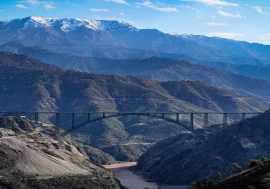
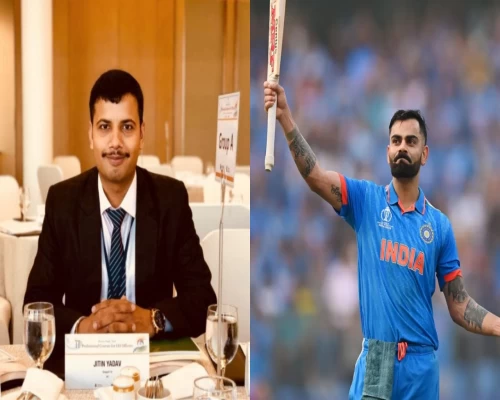
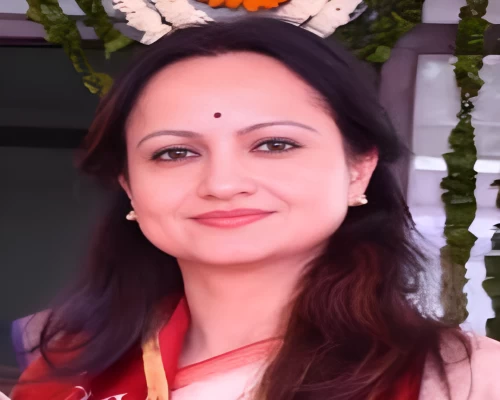
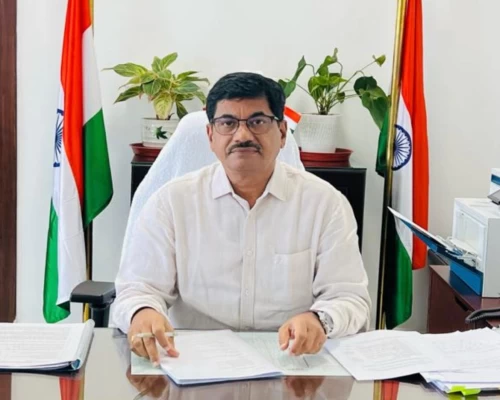
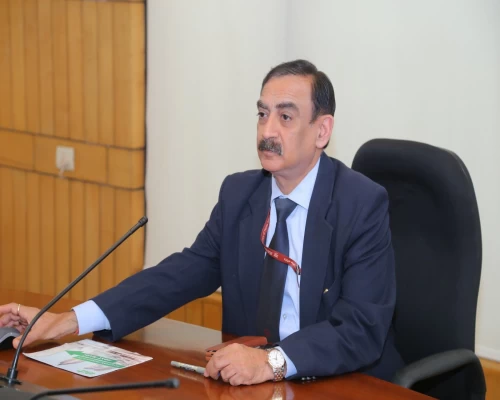
_500_x_400.webp)
